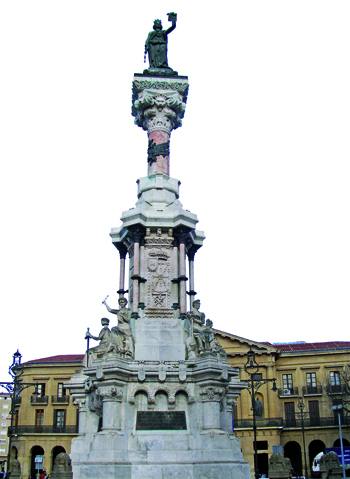
Madrid, May 1971, jurists are questioning the issue of taxation. The representative of the State is the one who asked the question, the answer is from the representative of Navarre, here is the question and answer:
– Let’s assume that the Government of Spain and the Diputación de Navarra did not reach an agreement in 1969, in which case the Spanish State could repeal the law of 1941 and/or the decree of 1969, right?
“No, not at all.” Because that would not have been a legal act. That would have been an act of violence.
It is 1931 and/or 1932, the late Manuel de Irujo campaigning for your status in Zirauki. In the meeting, several Navarrese councillors, who were trying to exaggerate them, asked Irujo the following question:
What are forums for you?
The councilman who has not taken off his hat dares:
“Don Manuel, the forums are the testicles of Navarre.”
Privileges, antiquities, a tool of self-constitution, traces of lost sovereignty, as many adjectives as you want can be used when defining forums. There is no concept more vague than the meaning of forums in our politics. The fora are the central pillar of the juridical-political organization of the four southern provinces.
In the case of Navarre and especially since 1841 this issue has been presented as an agreement, the economic agreement between the State and the Diputación (now the Government of Navarre) is an agreement after a negotiation. They wanted to make us believe that. But we know that all this will often be a clash between the state and the government of Navarre.
The last disagreement has conditioned the financing of local entities. In May 2010, the Spanish Congress passed the Royal Decree-Law to reduce the public deficit, among other measures, thanks to the abstention of the UPN. According to this, the deficit of a local entity, a municipality, may not exceed 75% of the budget. The Government of Navarre passed a Provincial Law in June of the same year, which, in an attempt to circumvent the aforementioned prohibition, allowed the indebtedness of these municipalities if the Department of Local Administration accredited the economic viability of the project. The Government of Zapatero filed an appeal for constitutional opposition to this measure. Now the Spanish Constitutional Court has approved the appeal of the Spanish Government. The Government of Navarre has begun to prepare its defence at a time when elections are about to take place.
In the case of Navarre, it affects 90 public entities, which are at risk due to investments in money of 44 million euros, and most of them, of course, in the construction sector. According to the Government of Navarre, if the measure were to be repealed, more than 2,200 jobs would be at risk. The Foral Community has 272 municipalities, so the funding of a third of the municipalities of Navarre on the eve of the elections is in serious trouble.
How to express it, how to explain it to these municipalities, of the UPN-PSN government agreement?
We will leave it for another time, the relevance of the forums today, the perception that citizens have of the forums and others.
Now, let me tell you the reader, do you know who, in that debate in Madrid in 1971, used the term violence? Yeah, you guessed it, Jaime Ignacio del Burgo.
Yes. The income declaration can be presented in Basque, both in the Autonomous Community of the Basque Country and in Nafarroa Garaia, as the UEMA (Commonwealth of Basque Municipalities) reminds us annually along with various public institutions and municipalities. In addition,... [+]
Like every year, at the end of April, we have the unavoidable obligation to present our tax return to the Hacienda Foral. And like every year, the Catholic Church, following its eternal line, refills with publicity on all sides to check the church's box. Thus, it would receive... [+]
The Araba, Bizkaia and Gipuzkoa Foral Haciendas have just extracted the data from the collection, and we have seen that they have received more money than ever before. They soon announce that they will take the necessary margin for reflection on tax reform, because there is no... [+]
The title of this article is Victor Hugor, a great French writer from the 19th century. The Christian writer was very clear that the Church and the State should be separated. Something similar is found in the Gospel of St. Matthew, 22,21: "Pay to Caesar what is of Caesar, and to... [+]






















